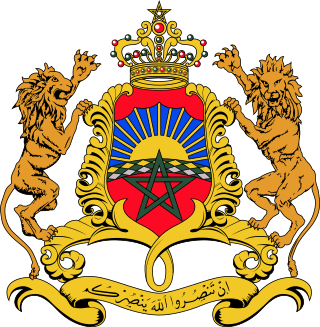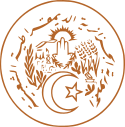The politics of Cambodia are defined within the framework of a constitutional monarchy, in which the king serves as the head of state, and the prime minister is the head of government. The collapse of communism set in motion events that led to the withdrawal of the Vietnamese armed forces, which had established their presence in the country since the fall of the Khmer Rouge. The 1993 constitution, which is currently in force, was promulgated as a result of the 1991 Paris Peace Agreements, followed by elections organized under the aegis of the United Nations Transitional Authority in Cambodia. The constitution declares Cambodia to be an "independent, sovereign, peaceful, permanently neutral and non-aligned country." The constitution also proclaims a liberal, multiparty democracy in which powers are devolved to the executive, the judiciary and the legislature. However, there is no effective opposition to the Prime Minister Hun Sen, who has been in power from 1984 up to 2023. His Cambodian People's Party won all 125 seats in the National Assembly in 2018 after the banning of opposition party CNRP and KNLF. KNLF became a main opposition exiled in Denmark after CNRP was dissolved. During the communal election in 2022 and the national election in 2023, there were no international observers. The government is considered to be autocratic.

The Czech Republic is a unitary parliamentary republic, in which the president is the head of state and the prime minister is the head of government. Executive power is exercised by the Government of the Czech Republic, which reports to the Chamber of Deputies. The legislature is exercised by the Parliament. The Czech Parliament is bicameral: the upper house of the Parliament is the Senate, and the lower house is the Chamber of Deputies. The Senate consists of 81 members who are elected for six years. The Chamber of Deputies consists of 200 members who are elected for four years. The judiciary system is topped by the trio of the Constitutional Court, Supreme Court and Supreme Administrative Court.
Politics in Estonia takes place in a framework of a parliamentary representative democratic republic, whereby the Prime Minister of Estonia is the head of government, and of a multi-party system. Legislative power is vested in the Estonian parliament. Executive power is exercised by the government, which is led by the prime minister. The judiciary is independent of the executive and the legislature. Estonia is a member of the United Nations, the European Union, and NATO.

The politics of Gabon takes place in a framework of a republic whereby the president of Gabon is head of state and in effect, also the head of government, since he appoints the prime minister and his cabinet. The government is divided into three branches: the executive headed by the prime minister, the legislative that is formed by the two chambers of parliament, and the judicial branch. The judicial branch is technically independent and equal to the two other branches, although in practice, since its judges are appointed by the president, it is beholden to the same president. Since independence the party system is dominated by the conservative Gabonese Democratic Party.

The politics of Mongolia takes place in a framework of a semi-presidential multi-party representative democracy. Executive power is exercised by the prime minister, who is the head of government, and the Cabinet. The president is the head of state, but holds limited authority over the executive branch of the government, unlike full presidential republics like the United States. Legislative power is vested in parliament. The judiciary is independent of the executive and the legislature.

A prime minister or chief of cabinet is the head of the cabinet and the leader of the ministers in the executive branch of government, often in a parliamentary or semi-presidential system. Under those systems a prime minister is not the head of state, but rather the head of government, serving as the principal administrator under either a monarch in a monarchy or a president in a republican form of government.

The politics of Tunisia takes place within the framework of a unitary semi-presidential representative democratic republic, with a president serving as head of state, prime minister as head of government, a unicameral legislature and a court system influenced by French civil law. Between 1956 and 2011, Tunisia operated as a de facto one-party state, with politics dominated by the secular Constitutional Democratic Rally (RCD) under former presidents Habib Bourguiba and then Zine el Abidine Ben Ali. However, in 2011 a national uprising led to the ousting of Ben Ali and the dismantling of the RCD, paving the way for a multi-party democracy. October 2014 saw the first democratic parliamentary elections since the 2011 revolution, resulting in a win by the secularist Nidaa Tounes party with 85 seats in the 217-member assembly.

The politics of Barbados function within a framework of a parliamentary republic with strong democratic traditions; constitutional safeguards for nationals of Barbados include: freedom of speech, press, worship, movement, and association.

The Government of Bhutan has been a constitutional monarchy since 18 July 2008. The King of Bhutan is the head of state. The executive power is exercised by the Lhengye Zhungtshog, or council of ministers, headed by the Prime Minister. Legislative power is vested in the bicameral Parliament, both the upper house, National Council, and the lower house, National Assembly. A royal edict issued on April 22, 2007 lifted the previous ban on political parties in anticipation of the National Assembly elections in the following year. In 2008, Bhutan adopted its first modern Constitution, codifying the institutions of government and the legal framework for a democratic multi-party system.

The prime minister of France, officially the prime minister of the French Republic, is the head of government of the French Republic and the leader of the Council of Ministers.

The current Constitution of France was adopted on 4 October 1958. It is typically called the Constitution of the Fifth Republic(French: la Constitution de la Cinquième République), and it replaced the Constitution of the Fourth Republic of 1946 with the exception of the preamble per a 1971 decision of the Constitutional Council. The current Constitution regards the separation of church and state, democracy, social welfare, and indivisibility as core principles of the French state.

The People's National Assembly is the lower house of the Algerian Parliament. It is composed of 407 members directly elected by the population. Of the 407 seats, 8 are reserved for Algerians living abroad. Members of the People's National Assembly are directly elected through proportional representation in multiple-member districts and serve terms lasting five years at a time. The last election for this body was held on 12 June 2021. The minimum age for election to the Assembly is 28.

The prime minister of Cambodia is the head of government of Cambodia. The prime minister is also the chairman of the Cabinet and leads the executive branch of the Royal Government of Cambodia. The prime minister is a member of parliament, and is appointed by the monarch for a term of five years. Since 1945, 37 individuals have served as prime minister; 33 as official prime ministers, and 4 in acting capacities. The current prime minister since 2023 is Hun Manet.

The Constitution of Armenia was adopted by a nationwide Armenian referendum on July 5, 1995. This constitution established Armenia as a democratic, sovereign, social, and constitutional state. Yerevan is defined as the state's capital. Power is vested in its citizens, who exercise it directly through the election of government representatives. Decisions related to changes in constitutional status or to an alteration of borders are subject to a vote of the citizens of Armenia exercised in a referendum. There are 117 articles in the 1995 constitution. On November 27, 2005, a nationwide constitutional referendum was held and an amended constitution was adopted. The constitution was amended again in a national referendum on December 6, 2015 that changed the political structure from a semi-presidential system to a parliamentary republic.

The Government of Thailand, or formally the Royal Thai Government, is the unitary government of the Kingdom of Thailand. The country emerged as a modern nation state after the foundation of the Chakri Dynasty and the city of Bangkok in 1782. The Revolution of 1932 brought an end to absolute monarchy and replaced it with a constitutional monarchy.

Early general elections were held in Morocco on 25 November 2011, brought forward from 2012 and then postponed from 7 October 2011.

The politics of France take place with the framework of a semi-presidential system determined by the French Constitution of the French Fifth Republic. The nation declares itself to be an "indivisible, secular, democratic, and social Republic". The constitution provides for a separation of powers and proclaims France's "attachment to the Rights of Man and the principles of National Sovereignty as defined by the Declaration of 1789".

Parliamentary elections were held in Algeria on 10 May 2012. The incumbent coalition, consisting of the National Liberation Front (FLN) of President Abdelaziz Bouteflika and the National Rally for Democracy (RND) of Prime Minister Ahmed Ouyahia, held on to power after winning a majority of seats. The Islamist parties of the Green Algeria Alliance lost seats.
Following the 2011 Egyptian revolution, the Muslim Brotherhood in Egypt became one of the main forces contending for political power in Egypt against the Supreme Council of the Armed Forces (SCAF) and other established centers of the former Hosni Mubarak regime.
















